How Hypnosis Can Help You Overcome Problem Gambling
Hypnosis for Gambling

Problem gambling affects millions of people worldwide, wreaking havoc on their lives. From financial ruin to strained relationships and deteriorating mental health, the consequences of gambling addiction can be devastating.
A practical method for addressing problem gambling is through Hypnosis, a therapeutic technique with a long history of helping individuals modify their behaviour and enhance their mental well-being. By harnessing the power of the subconscious mind, Hypnosis can assist gamblers in breaking free from addictive patterns and developing healthier habits. In this blog, we will delve into the workings of Hypnosis, its advantages, and its role as an effective tool in overcoming problem gambling.
Understanding Problem Gambling
Definition and Symptoms Problem Gambling addiction, also known as compulsive gambling, is when someone can't stop gambling even when it causes them problems. This can show up in different ways, like:
- Preoccupation with gambling: Constantly thinking about gambling and planning the next session.
- Increasing bets: Needing to gamble with more money to achieve the desired excitement.
- Chasing losses: Trying to win back money lost in previous gambling sessions.
- Lying: Concealing the extent of gambling behaviour from family and friends.
- Financial problems: Accumulating debts or using savings meant for other purposes to fund gambling.
- Relationship issues: Experiencing conflicts with loved ones due to gambling behaviour.
Statistics on Prevalence The impact of problem gambling is widespread, with alarming statistics highlighting its prevalence:
- According to the National Council on Problem Gambling, approximately 2-3% of the US population experiences gambling problems.
- In the UK, the Gambling Commission reports that around 0.7% of adults are problem gamblers, with an additional 3.6% at risk.
- A study by the Australian Institute of Family Studies indicates that 1-2% of Australians are problem gamblers.
- The World Health Organization estimates that about 0.1-0.8% of the global population suffers from gambling addiction.
These numbers reflect the urgent need for effective treatment options to help those struggling with this addiction.
Common Triggers and Psychological Factors Problem gambling is often triggered by a combination of psychological, environmental, and genetic factors. Some common triggers and contributing factors include:
- Stress and Anxiety: Gambling can be seen as a way to escape from life's pressures and anxieties.
- Depression: Individuals suffering from depression may turn to gambling as a form of self-medication.
- Loneliness: Social isolation and loneliness can drive people to seek the excitement and companionship offered by gambling venues.
- Personality Traits: Traits such as impulsivity and risk-taking behaviour are associated with a higher likelihood of developing gambling problems.
- Environmental Factors: Exposure to gambling environments, such as living near casinos or being part of a social group that gambles, can increase the risk.
- Cognitive Distortions: Misunderstandings about gambling, like thinking you can control the outcome or believing in lucky streaks, can make gambling problems worse.
It's really important to understand these things in order to come up with good plans to help people with gambling problems.
Traditional approaches to Treating Problem Gambling
Cognitive Behavioral Therapy (CBT)Cognitive Behavioral Therapy (CBT) is one of the most commonly used treatments for problem gambling. This method concentrates on recognizing and adjusting the way people think and act that leads to addiction. Critical components of CBT for gambling include:
- Identifying Triggers: Recognizing the situations, thoughts, and feelings that lead to gambling urges.
- Challenging Cognitive Distortions: This section addresses false beliefs and irrational thoughts about gambling, such as the belief that one can control the outcome of games.
- Developing Coping Strategies: Finding positive ways to deal with stress, anxiety, and other feelings that might lead to gambling.
- Relapse Prevention: Creating a plan to avoid relapse, including recognizing early warning signs and developing strategies to manage cravings.
CBT has been shown to be effective in reducing gambling behaviour and improving overall mental health, making it a cornerstone of many treatment programs.
Support Groups (e.g., Gamblers Anonymous) Support groups like Gamblers Anonymous (GA) provide a community-based approach to recovery. Modelled after Alcoholics Anonymous, GA offers a 12-step program to help individuals overcome their addiction through peer support and shared experiences. Critical aspects of support groups include:
- Peer Support: Engaging with others who have experienced similar struggles can provide motivation and a sense of belonging.
- Accountability: Regular meetings and the support of a sponsor help individuals stay committed to their recovery goals.
- Shared Experiences: Hearing the stories of others and sharing one's journey can provide valuable insights and encouragement.
Support groups can be an invaluable resource for those seeking ongoing support and a structured approach to recovery.
Limitations of These Approaches While traditional approaches like CBT and support groups have proven benefits, they also have limitations:
- Accessibility: Not everyone has access to trained CBT therapists or nearby support group meetings, especially in rural or underserved areas.
- Engagement: Some individuals may need help engaging with or committing to the structured nature of CBT or the social aspect of support groups.
- Relapse Rates: Despite their effectiveness, relapse rates can be high, as these approaches often require long-term commitment and continuous effort.
- One-Size-Fits-All: Traditional methods may not address the unique needs of every individual, as they can vary significantly in terms of personal triggers, psychological factors, and life circumstances.
These limitations highlight the need for a diverse array of treatment options, including alternative therapies like Hypnosis, to provide comprehensive support for individuals struggling with problem gambling.
How Hypnosis Addresses Problem Gambling
Accessing the Subconscious Mind Hypnosis guides individuals into a deeply relaxed state, allowing access to the subconscious mind. In this state, the mind is more open to suggestion and change. Hypnosis can help break down the mental barriers that sustain gambling addiction by:
- Bypassing the Critical Conscious Mind: Directly addressing the subconscious can help alter entrenched habits and beliefs that drive gambling behaviour.
- Enhancing Focus and Concentration: When deeply relaxed, individuals are more receptive to therapeutic suggestions, making it easier to implant positive changes.
Reframing Thoughts and Beliefs about Gambling Hypnosis can effectively reframe the negative thought patterns and beliefs that contribute to problem gambling. This involves:
- Changing Perceptions: Hypnosis can help alter the way individuals perceive gambling, transforming it from an exciting activity to one associated with adverse outcomes.
- Addressing Cognitive Distortions: Hypnosis can help individuals develop a more realistic understanding of gambling risks and probabilities by targeting irrational beliefs and cognitive distortions, such as the illusion of control or the gambler's fallacy.
Strengthening Willpower and Self-ControlHypnosis can enhance an individual's willpower and self-control, essential components for overcoming addiction. This is achieved by:
- Boosting Confidence: Hypnotic suggestions can build self-confidence, making individuals more capable of resisting gambling urges.
- Reinforcing Positive Behaviors: Hypnosis can instil and reinforce positive behaviours, such as finding alternative activities to replace gambling or practising self-discipline.
- Developing Coping Mechanisms: Hypnosis can provide tools and strategies for managing stress and emotional triggers without resorting to gambling.
Addressing Underlying Emotional Issues Many people start gambling because they are trying to deal with deep emotional problems like stress, anxiety, or sadness. Hypnosis can assist in dealing with these main issues by:
- Exploring Emotional Triggers: Hypnosis can uncover deep-seated emotional issues that contribute to gambling addiction, allowing for targeted therapeutic interventions.
- Promoting Emotional Healing: "Hypnosis can be a helpful way for people to work through and recover from past difficult experiences and emotional hurt by creating a feeling of calm and inner harmony."
- Enhancing Emotional Regulation: Hypnotic techniques can improve emotional regulation, helping individuals respond to stress and negative emotions in healthier ways.
By addressing both the behavioural and emotional aspects of gambling addiction, Hypnosis offers a holistic approach to overcoming problem gambling, providing individuals with the tools they need to regain control over their lives.
The Hypnosis Process for Gambling Addiction
Initial Consultation and Assessment The journey to overcoming gambling addiction through Hypnosis begins with an initial consultation and assessment. During this stage:
- Comprehensive Evaluation: The hypnotherapist conducts a detailed assessment of the individual's gambling behaviour, triggers, and underlying emotional issues.
- Personal History: Understanding the client's personal history, including past traumas, stressors, and previous attempts at overcoming gambling, helps tailor the treatment.
- Setting Goals: The therapist and client work together to decide on specific, realistic goals for the hypnosis sessions, making sure they both agree on what they want to achieve.
Customised Hypnosis Sessions Based on the assessment, the hypnotherapist designs customized hypnosis sessions to address the specific needs of the individual. These sessions typically include:
- Induction Phase: The therapist guides the client into a deeply relaxed and focused state, often using techniques such as progressive relaxation or guided imagery.
- Therapeutic Work: In this state, the therapist introduces suggestions aimed at altering the client's subconscious thoughts and behaviours related to gambling. This may involve:
- Reframing Gambling Perceptions: Changing how the individual views gambling, associating it with adverse outcomes instead of excitement.
- Enhancing Self-Control: Strengthening the individual's ability to resist gambling urges and make healthier choices.
- Addressing Emotional Issues: Targeting underlying emotional triggers, such as stress or anxiety, that contribute to the gambling addiction.
- Emergence: The therapist gradually brings the client back to full awareness, ensuring they feel relaxed and refreshed.
Post-Hypnotic Suggestions An essential component of Hypnosis for gambling addiction is the use of post-hypnotic suggestions. These are specific instructions given during the hypnotic state that continue to influence the client's behaviour and thoughts after the session. Examples include:
- Triggers and Responses: Suggestions that create automatic responses to triggers, such as feeling a sense of calm and control when faced with gambling opportunities.
- Positive Affirmations: Reinforcing self-worth and confidence, helping the client believe in their ability to overcome the addiction.
- Behavioural Changes: Encouraging the adoption of new, healthier habits and hobbies that replace gambling.
Self-Hypnosis Techniques for Ongoing Support To maintain progress and support long-term recovery, clients are often taught self-hypnosis techniques. These techniques enable individuals to continue reinforcing positive changes on their own. Critical aspects of self-hypnosis include:
- Daily Practice: Incorporating self-hypnosis into a daily routine to reinforce the therapeutic suggestions and maintain a relaxed, focused mindset.
- Guided Self-Hypnosis: Using recorded sessions provided by the hypnotherapist to guide self-hypnosis practice.
- Stress Management: Applying self-hypnosis techniques to manage stress and emotional triggers, reducing the risk of relapse.
By following these steps, individuals can leverage the power of Hypnosis to overcome problem gambling, achieving lasting change and a healthier, more balanced life.
Rapid Results Compared to Some Traditional Methods One of the significant advantages of using Hypnosis to address problem gambling is the potential for fast results. Unlike some traditional therapies, which may require months or even years to see significant progress, Hypnosis can produce noticeable changes in a relatively short period. Key benefits include:
- Quick Behavioral Shifts: Many individuals experience immediate changes in their attitudes and behaviours toward gambling after just a few sessions.
- Enhanced Motivation: The deep state of relaxation and focus achieved during Hypnosis can significantly boost motivation and commitment to overcoming gambling addiction.
- Accelerated Healing: Hypnosis can fast-track the healing of emotional issues that contribute to gambling, providing quicker relief from the psychological burden of addiction.
Addresses Root Causes, Not Just Symptoms Hypnosis goes beyond merely addressing the symptoms of problem gambling; it targets the underlying root causes. This comprehensive approach ensures more effective and lasting results by:
- Identifying Deep-Seated Issues: Hypnosis can uncover hidden emotional traumas, stressors, or psychological factors that fuel gambling behaviour.
- Reframing Negative Thought Patterns: By accessing the subconscious mind, Hypnosis can help reframe and transform negative thought patterns and beliefs associated with gambling.
- Promoting Emotional Healing: Hypnosis facilitates the processing and healing of unresolved emotional issues, leading to a more profound and sustained recovery.
Empowers Individuals with Self-Help Techniques A significant benefit of Hypnosis is that it allows individuals with self-help techniques to use them independently. This aspect of Hypnosis fosters long-term recovery and personal growth by:
- Self-Hypnosis Skills: Clients learn self-hypnosis techniques that they can practice regularly to reinforce positive changes and maintain control over their gambling urges.
- Stress Management Tools: Hypnosis provides effective tools for managing stress, anxiety, and other emotional triggers that may lead to gambling.
- Confidence and Self-Efficacy: By mastering self-hypnosis and other techniques, individuals build confidence in their ability to overcome challenges and maintain their recovery.
By offering rapid results, addressing the root causes of gambling addiction, and empowering individuals with practical self-help techniques, Hypnosis provides a holistic and effective approach to overcoming problem gambling. This multifaceted treatment option can lead to lasting change and a healthier, more balanced life for those struggling with gambling addiction.
Case Studies or Success Stories
A. Brief Examples of Individuals Who Overcame Gambling Addiction with Hypnosis
- Paul's Story: From Desperation to Control
- Background: Paul had been struggling with problem gambling for over a decade, losing significant amounts of money and facing mounting debt. His addiction strained his relationships and caused severe anxiety.
- Hypnosis Journey: After trying various traditional therapies with limited success, Paul turned to Hypnosis. Through a series of personalized hypnosis sessions, he began to address the underlying emotional triggers of his gambling behaviour.
- Outcome: Within a few months, Paul experienced a dramatic reduction in his gambling urges. He gained better control over his impulses, rebuilt his relationships, and started to manage his finances more effectively. Today, Paul credits hypnosis with helping him reclaim his life.
- Linda's Transformation: Finding Peace and Freedom
- Background: Linda's gambling addiction began as a way to cope with the stress of her high-pressure job. Over time, it spiralled out of control, leading to significant financial and emotional distress.
- Hypnosis Journey: Linda sought the help of a certified hypnotherapist who guided her through sessions focused on stress management and reprogramming her subconscious mind. Hypnosis helped Linda uncover and address the root causes of her addiction.
- Outcome: Through Hypnosis, Linda learned to manage her stress without resorting to gambling. She reported feeling more at peace and in control of her actions. Linda has now been free from gambling addiction for over two years and continues to use self-hypnosis techniques for ongoing support.
- Mark's Path to Recovery: From Relapse to Resilience
- Background: Mark had a history of relapsing into gambling addiction despite multiple attempts at recovery through traditional methods. His addiction affected his job performance and personal life.
- Hypnosis Journey: Mark's Craig from Inspired Mindset worked with him to build his resilience and strengthen his willpower. Hypnosis sessions focused on developing positive coping mechanisms and altering Mark's perceptions of gambling.
- Outcome: After several hypnosis sessions, Mark noticed a significant decrease in his gambling cravings. He developed healthier habits and found new hobbies to replace gambling. Mark has maintained his recovery for over a year.
Statistics on Success Rates
- Research Studies: Various studies have demonstrated the effectiveness of Hypnosis in treating problem gambling. For example, a study published in the International Journal of Clinical and Experimental Hypnosis found that participants who underwent hypnotherapy showed significant improvements in controlling their gambling behaviours.
- Success Rates: Clinical reports and practitioner surveys indicate that Hypnosis can lead to success rates ranging up to reducing or eliminating gambling behaviours. These rates are comparable to, sometimes higher than, traditional treatments like Cognitive Behavioral Therapy (CBT). According to a report from the American Society of Clinical Hypnosis, hypnotherapy has been effective in treating various addictions, including gambling.
- Long-Term Benefits: Follow-up studies and client testimonials often reveal that individuals who use Hypnosis to overcome gambling addiction experience long-term benefits, including sustained control over their impulses and improved overall mental health. An article from Psychology Today highlights the lasting impact of hypnotherapy on addiction recovery.
By highlighting these success stories and supporting statistics, it's evident that Hypnosis can be a powerful tool in the fight against problem gambling. These real-life examples and data provide hope and encouragement for those considering Hypnosis as a treatment option.
Recap of How Hypnosis Can Help Overcome Problem GamblingHypnosis offers a unique and practical approach to treating problem gambling by accessing the subconscious mind to reframe thoughts, strengthen willpower, and address underlying emotional issues. Through personalized sessions, Hypnosis can rapidly produce behavioural changes, provide deep emotional healing, and equip individuals with self-help techniques to support long-term recovery.
Encouragement for Seeking Help If you or someone you know is struggling with problem gambling, it's crucial to seek help. Hypnosis is a promising option that can complement traditional therapies like Cognitive Behavioral Therapy (CBT) and support groups such as Gamblers Anonymous. Consulting with a certified hypnotherapist can be the first step toward reclaiming control and building a healthier, more balanced life.
Final Thoughts on the Potential of Hypnosis in Addiction Treatment Hypnosis has shown significant potential in treating various forms of addiction, including problem gambling. Its ability to address both the symptoms and root causes of addiction, coupled with its empowering self-help techniques, makes it a powerful tool for recovery. As more individuals and healthcare providers recognize its benefits, Hypnosis may become an increasingly integral part of addiction treatment programs. Embracing this holistic approach can pave the way for lasting recovery and a future free from the grips of gambling addiction.
Recap of How Hypnosis Can Help Overcome Problem Gambling Hypnosis offers a unique and practical approach to treating problem gambling by accessing the subconscious mind to reframe thoughts, strengthen willpower, and address underlying emotional issues. Through personalized sessions, Hypnosis can rapidly produce behavioural changes, provide deep emotional healing, and equip individuals with self-help techniques to support long-term recovery. Success stories and research underscore its potential to significantly reduce or eliminate gambling behaviours.
Encouragement for Seeking Help If you or someone you know is struggling with problem gambling, it's crucial to seek help. Hypnosis is a promising option that can complement traditional therapies like Cognitive Behavioral Therapy (CBT) and support groups such as Gamblers Anonymous. Consulting with a certified hypnotherapist can be the first step toward reclaiming control and building a healthier, more balanced life. Don't forget asking for help is a powerful thing to do, and it can make a significant and positive difference in your life.
Invitation to Learn More or Schedule a Consultation For those interested in exploring how Hypnosis can help overcome problem gambling, we invite you to learn more or schedule a consultation with Inspired Mindset. Canberra residents can take advantage of our face-to-face sessions, while interstate or overseas clients can access our services online. Whether you are local or remote, we are committed to supporting you on your journey to recovery.
Resources for Further Information To further understand Hypnosis and its role in treating gambling addiction, here are some valuable resources:
- Unlock Your Potential: The Top Benefits of Professional Life Coaching - Explore how professional life coaching can complement Hypnosis in achieving personal and professional growth. Read more
- Overcoming Addictions: A Comprehensive Look at the Top 10 Common Addictions - Learn about various addictions and effective strategies for overcoming them, including the role of Hypnosis. Read more
Embracing a holistic approach to treatment, such as combining Hypnosis with other therapeutic methods, can pave the way for lasting recovery and a future free from the grips of gambling addiction. Contact Inspired Mindset today to begin your journey toward a healthier, more fulfilling life.


















